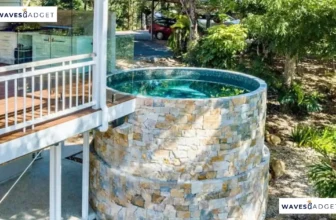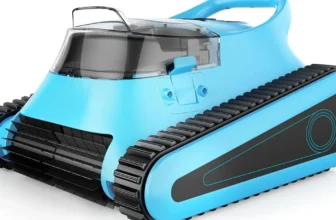A home with a swimming pool is a dream for many, offering a perfect space for relaxation, entertainment, and fitness. However, choosing the right pool option is crucial since different types of pools have unique benefits, costs, and maintenance requirements. Whether you’re looking for an outdoor pool to enhance your backyard or a compact garden pool, understanding the pros and cons of each pool style will help you make the best decision.
In this guide, we’ll break down six popular types of pools, their features, costs, and who they’re best suited for. Let’s dive in!
1. In-Ground Pools
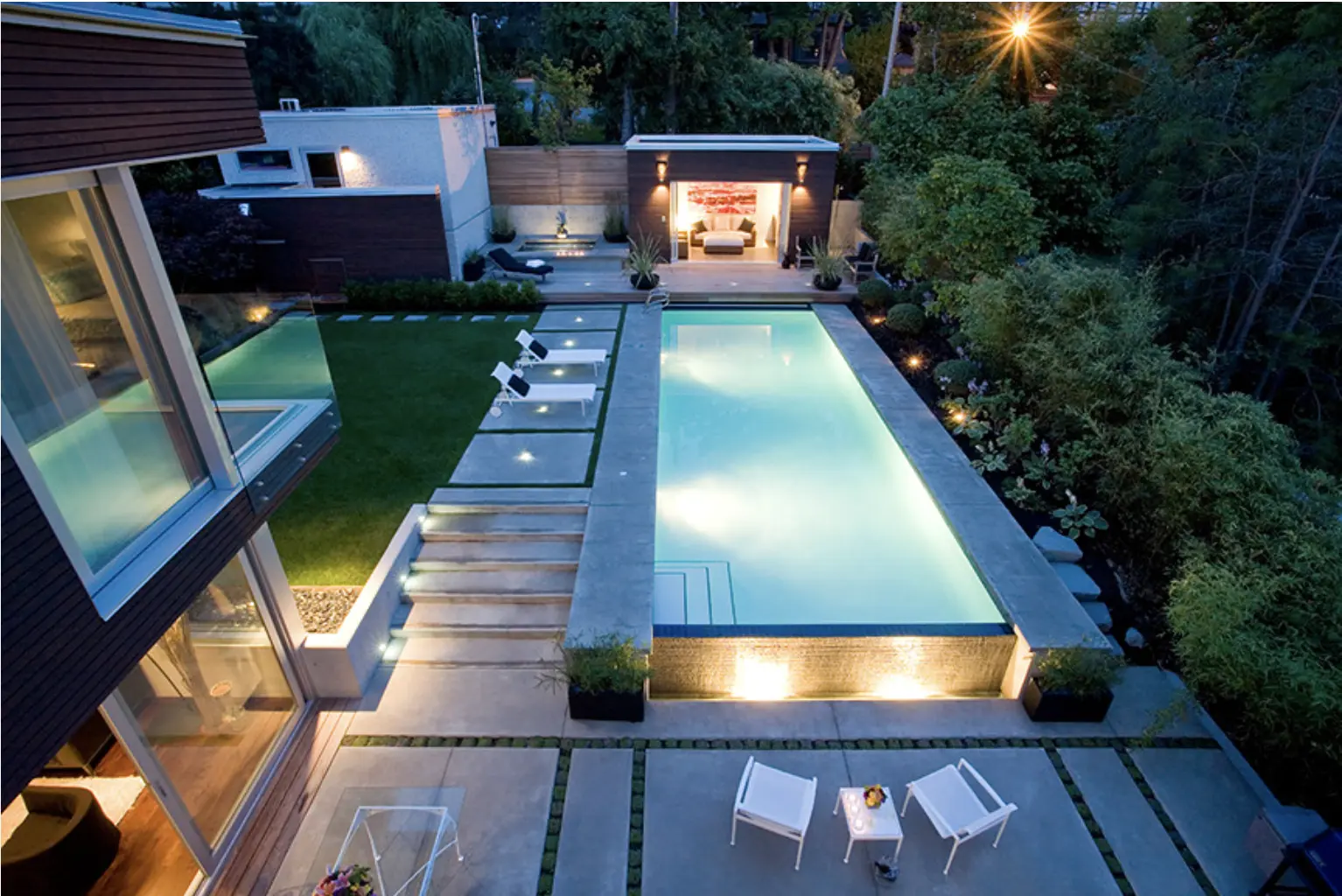
For those seeking a permanent, high-end pool solution, an in-ground pool is the ultimate backyard investment. These pools are custom-built into the landscape and can be designed with various materials like fiberglass, vinyl, and concrete.
Pros of In-Ground Pools:
- Long-lasting – With proper maintenance, these pools can last 30+ years.
- Aesthetic appeal – Enhances the look of residential pools with high-end designs.
- Customization options – Can be designed for depth, shape, and features like waterfalls and lighting.
- Adds property value – A well-maintained home with a swimming pool increases resale appeal.
- More swimming space – Suitable for lap swimming, pool games, and diving.
Cons of In-Ground Pools:
- High cost – Prices start from $35,000 and can exceed $100,000.
- Lengthy installation – Takes weeks to months to complete.
- Ongoing maintenance – Requires regular water treatment, cleaning, and resurfacing.
- Keeping an in-ground pool clean requires effort, but using the best pool vacuums can make maintenance much easier.
Who Should Get an In-Ground Pool?
If you’re looking for a luxurious, long-term investment, an in-ground pool is perfect. Ideal for families who entertain often, fitness enthusiasts, and those seeking high resale value.
In-ground pools are permanent structures built into the landscape, offering customization, luxury, and longevity. They can be made from fiberglass, vinyl, or concrete, each with its own benefits.
Our Advice: Best For
Homeowners looking for a permanent, luxury residential pool with long-term value.
2. Infinity Pools
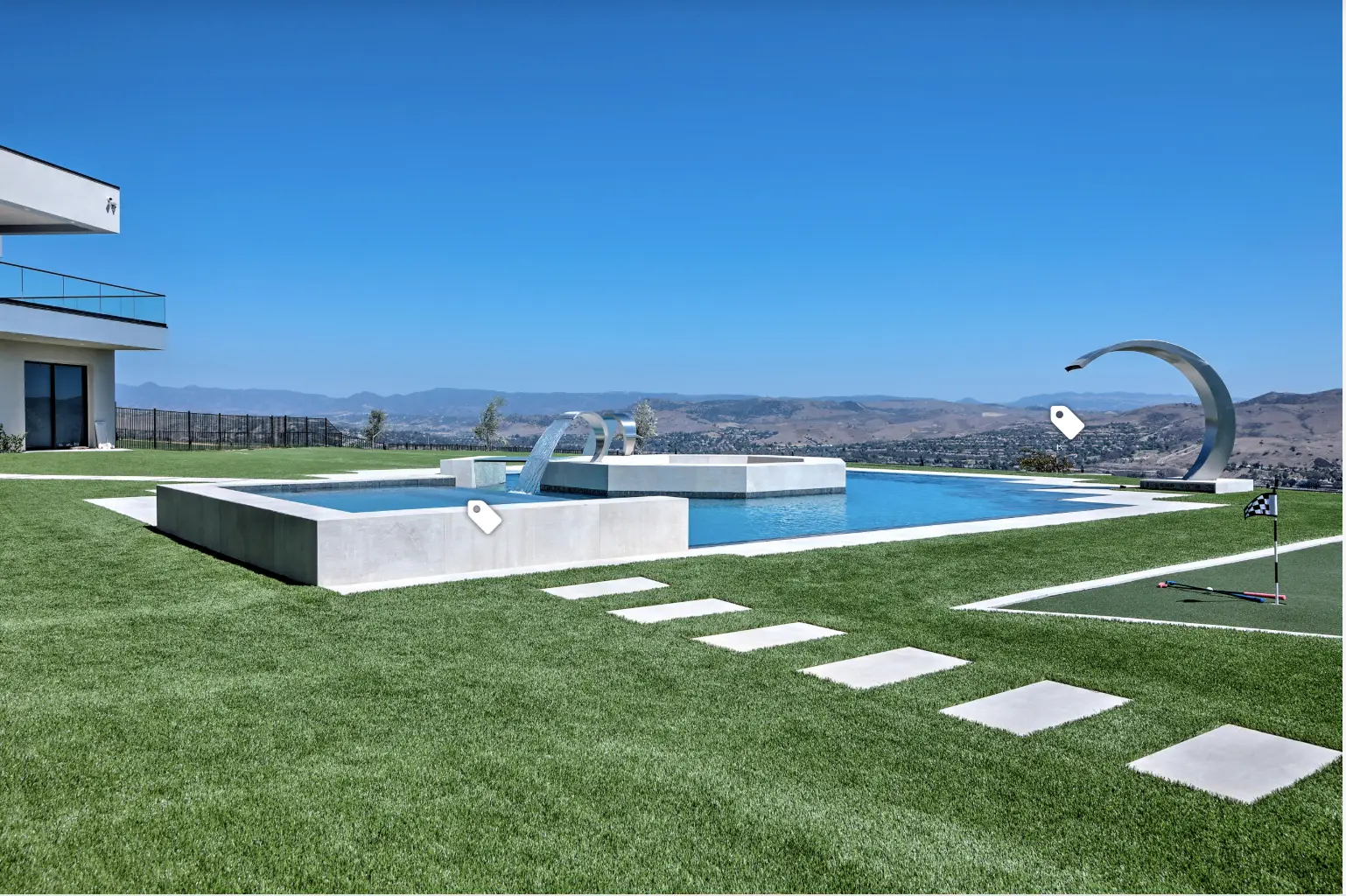
An infinity pool (also called a vanishing edge pool) is a high-end pool option that gives the illusion of water extending into the horizon. These luxurious outdoor pools are typically found in modern homes, resorts, and scenic locations.
Pros of Infinity Pools:
- Breathtaking visual appeal – Aesthetically stunning and perfect for showcasing panoramic views.
- Enhances property value – Adds a high-end feature to any residential pool setting.
- Customizable – Can be designed with LED lighting, waterfalls, and premium finishes.
- Ideal for relaxation – The soothing effect of water flowing over the edge creates a spa-like ambiance.
Cons of Infinity Pools:
- Extremely expensive – Costs range from $60,000 to $200,000+.
- Complex maintenance – Requires a catch basin, filtration system, and precise water levels.
- Not practical for small yards – Best suited for larger landscapes with an elevation drop.
- Infinity pools have specialized systems that need frequent troubleshooting. Learn more about common pool issues and how to fix them.
Who Should Get an Infinity Pool?
Homeowners with luxury properties or scenic views who want a high-end statement pool should consider an infinity pool.
Infinity pools (also known as vanishing edge pools) are high-end outdoor pools designed to give the illusion of water extending into the horizon. They are commonly found in luxury resorts and modern homes.
Our Advice: Best For
Homeowners with luxury properties and breathtaking outdoor views.
3. Above-Ground Pools
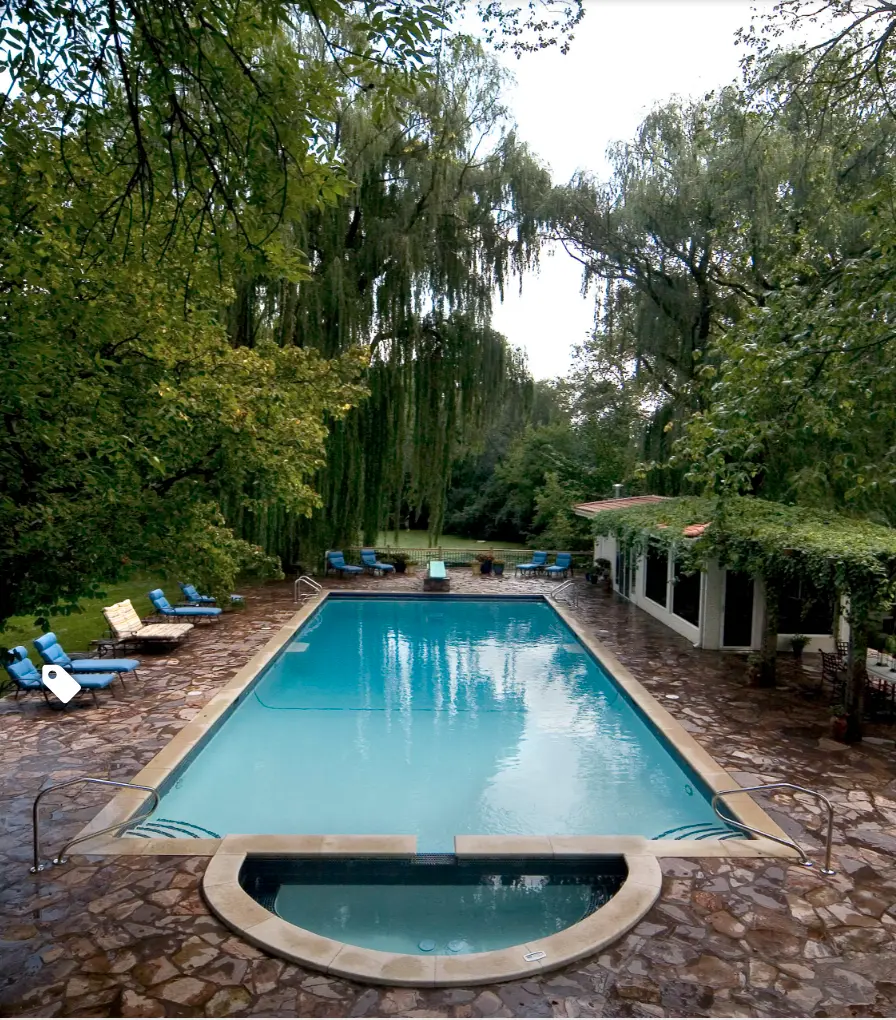
An above-ground pool is one of the most cost-effective and easiest ways to add a home pool to your backyard. These pools sit on the surface, making them ideal for homeowners who want flexibility, quick installation, and affordability. They are typically made from steel, aluminum, or resin frames with a vinyl liner and come in various shapes and sizes.
Pros of Above-Ground Pools:
- Most budget-friendly option – Prices start from $1,500, making them accessible for many homeowners.
- Quick and easy installation – Can be set up within days.
- Portable and removable – Some styles of pools can be taken apart and moved if needed.
- Low maintenance costs – Requires less water, fewer chemicals, and lower upkeep expenses compared to in-ground pools.
- Suitable for small yards – Perfect for homes with limited outdoor space.
Cons of Above-Ground Pools:
- Less durable than in-ground pools – Lasts 10-15 years, while in-ground pools can last decades.
- Aesthetic limitations – Harder to blend into luxury landscape designs.
- Limited features – Does not support deep diving, built-in slides, or infinity edges.
- Regular cleaning and upkeep are necessary to prevent algae buildup. Check out these DIY pool cleaning & maintenance tips to keep your pool in top shape.
Who Should Get an Above-Ground Pool?
If you’re looking for an affordable, easy-to-install, and low-maintenance option, an above-ground pool is a great choice. It’s best for families with kids, rental properties, and temporary pool solutions.
An above-ground pool is one of the most affordable and convenient options for homeowners. These residential pools are freestanding structures placed on the ground and typically made from steel, aluminum, or resin with a vinyl liner.
Our Advice: Best For
Homeowners on a budget looking for a simple backyard pool for seasonal use.
4. Lap Pools
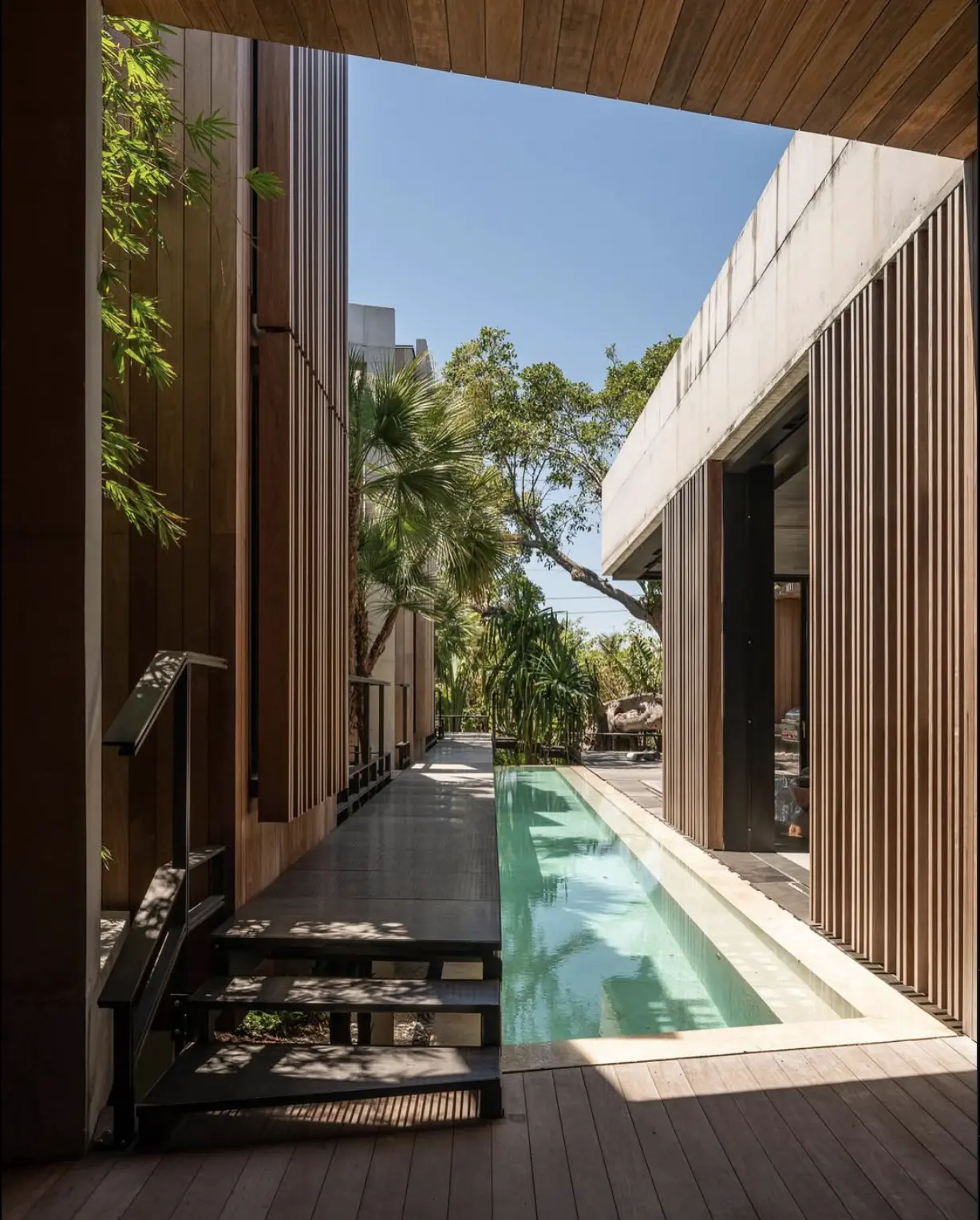
Designed for fitness and endurance training, lap pools are long, narrow, and built for continuous swimming. These pools are a popular choice for health-conscious homeowners.
Pros of Lap Pools:
- Space-efficient – Perfect for narrow yards or urban homes.
- Low maintenance – Uses less water and chemicals than traditional pools.
- Ideal for fitness – Provides a dedicated space for swimming laps.
- Customizable lengths – Can be 40+ feet long for serious swimmers.
Cons of Lap Pools:
- Limited recreational use – Not designed for lounging or pool parties.
- Initial investment – Costs range from $20,000 to $60,000.
- Minimal aesthetic appeal – Functional but lacks the wow-factor of other pool options.
- Keeping a lap pool clean can be time-consuming, but robotic pool cleaners can automate much of the process and keep your water crystal clear.
Who Should Get a Lap Pool?
Best for athletes, fitness enthusiasts, and homeowners with narrow outdoor spaces who prioritize exercise over recreation.
Lap pools are long, narrow pools designed for swimming exercise and training. They are perfect for homeowners who prioritize fitness over recreation.
Our Advice: Best For
Fitness enthusiasts who need a dedicated swimming space at home.
5. Plunge Pools
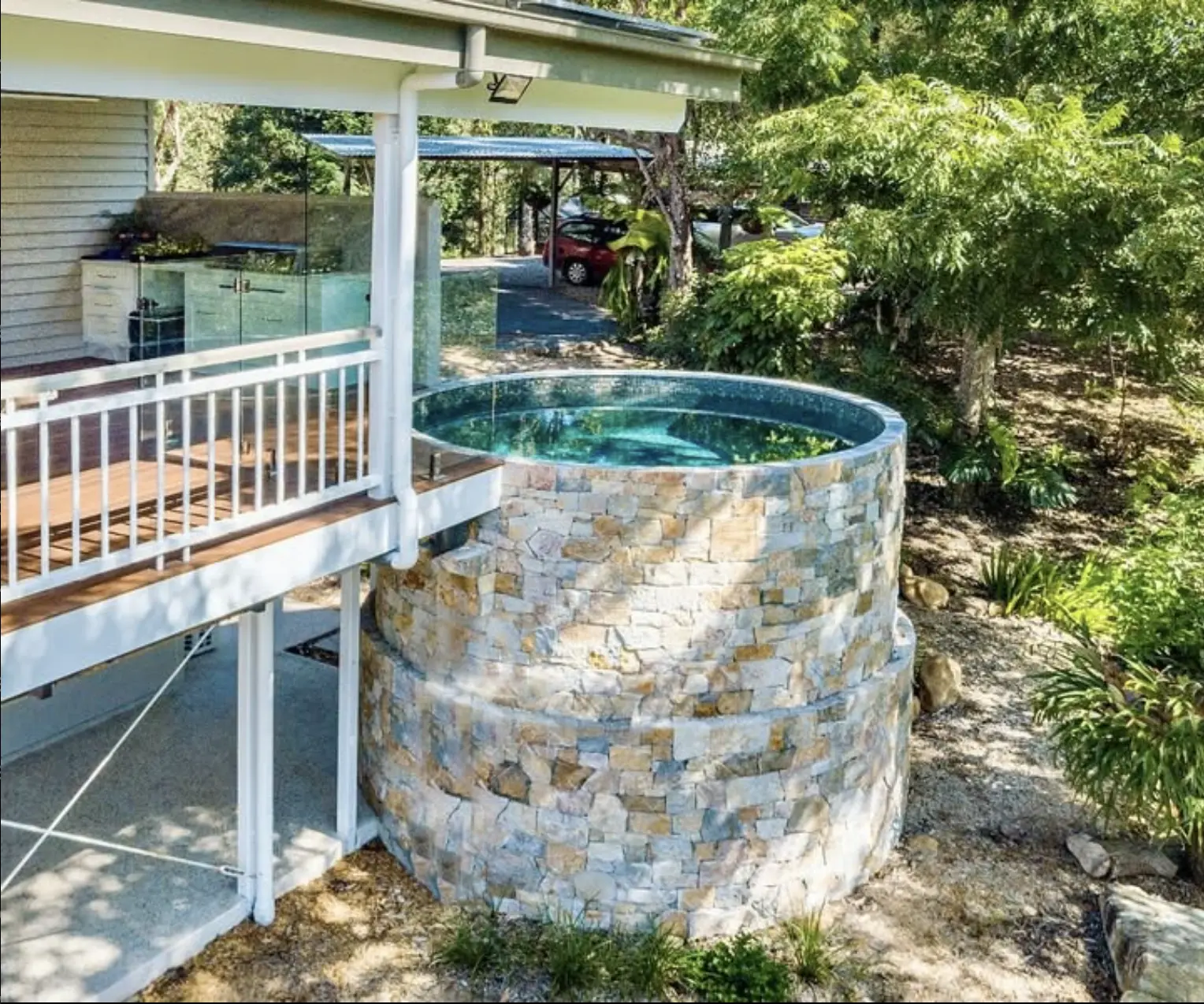
A plunge pool is a small, deep pool designed for cooling off, hydrotherapy, and compact yards. They are ideal for relaxation but not for swimming laps.
Pros of Plunge Pools:
- Great for small yards – Fits into tight spaces, patios, or courtyards.
- Energy-efficient – Requires less heating and fewer chemicals.
- Therapeutic benefits – Ideal for muscle recovery and hydrotherapy.
- Affordable compared to full-size pools – Costs range from $10,000 to $50,000.
Cons of Plunge Pools:
- Not ideal for exercise – Too small for lap swimming.
- Limited seating – Typically accommodates 1-3 people.
- Temperature fluctuations – Smaller volume means water heats and cools quickly.
Learn more in-depth about plunge pools to see if they’re the right choice for you.
Who Should Get a Plunge Pool?
Perfect for homeowners looking for a relaxation pool in a small outdoor space.
A plunge pool is a small, deep pool designed for cold-water therapy, hydrotherapy, and compact backyards. These pools provide relaxation without taking up too much space.
Our Advice: Best For
Homeowners looking for a compact relaxation pool with minimal upkeep.
6. Hot Tubs & Spas
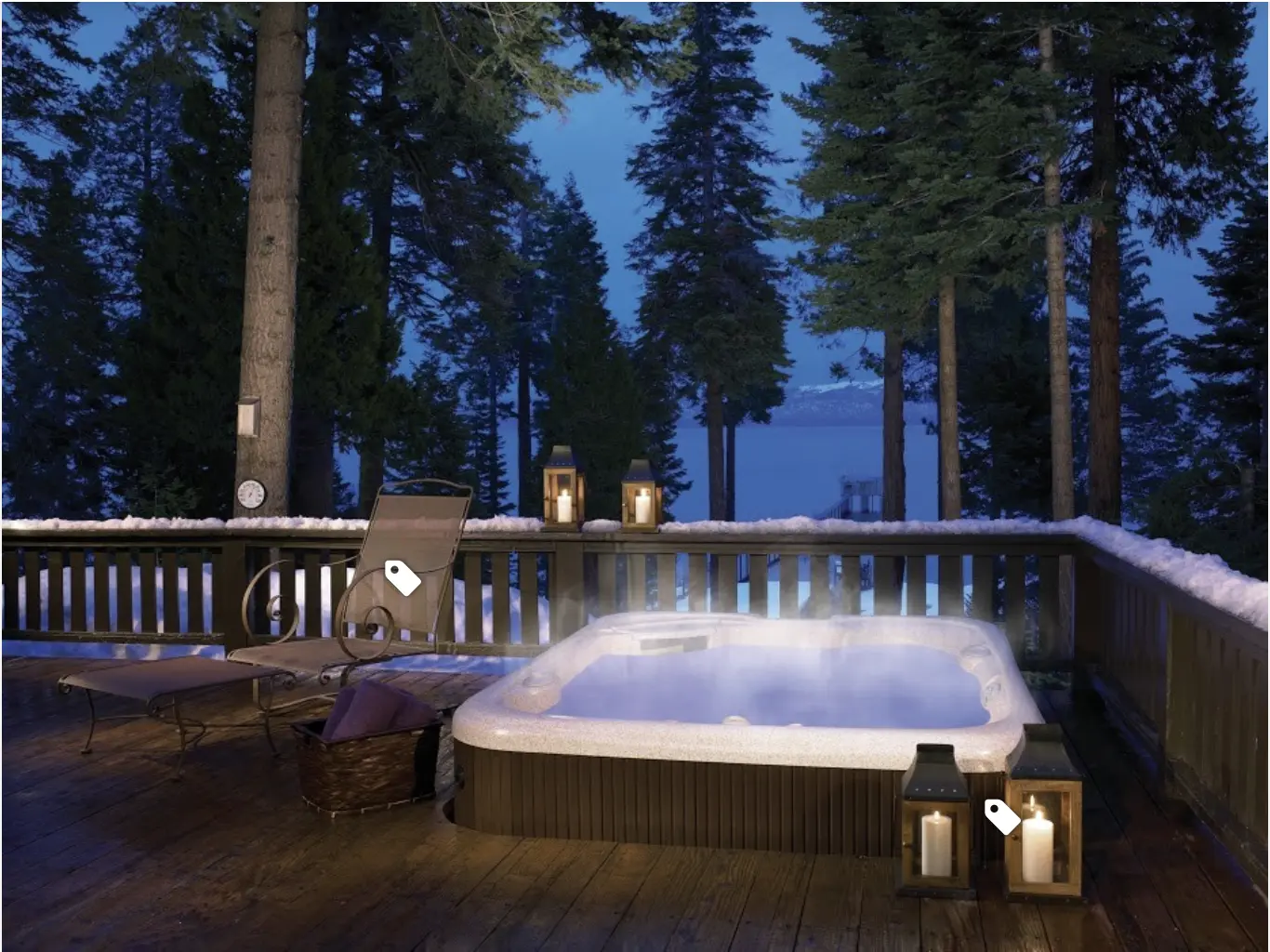
Hot tubs and spas are heated pools designed for relaxation, hydrotherapy, and wellness. They can be portable or in-ground, with options for jets, seating, and lighting.
Pros of Hot Tubs & Spas:
- Therapeutic benefits – Helps relieve muscle tension and stress.
- Year-round use – Unlike regular pools, hot tubs can be used in winter.
- Energy-efficient – Smaller than standard pools, requiring less power to heat.
- Variety of options – Available in portable, in-ground, and swim-spa models.
Cons of Hot Tubs & Spas:
- Not suitable for exercise – Primarily for relaxation, not swimming.
- Maintenance required – Water must be treated regularly to prevent bacteria growth.
- Cost varies – Portable hot tubs start at $3,000, while in-ground spas can cost $20,000+.
Who Should Get a Hot Tub or Spa?
A hot tub or spa is perfect for those who want a relaxing, therapeutic water experience at home. It’s ideal for homeowners seeking pain relief, stress reduction, or a cozy space for socializing. If you prefer a compact yet luxurious pool experience, a hot tub or spa is a fantastic investment.
Hot tubs and spas are heated pools designed for relaxation, hydrotherapy, and wellness. They can be portable or in-ground, with options for jets, seating, and lighting.
Our Advice: Best For
Homeowners looking for a luxurious and therapeutic home spa experience.
Final Thoughts: Which Pool Type Is Right for You?
The best pool type depends on your budget, space, and purpose. If you’re looking for affordability, an above-ground pool is a great start. For luxury and property value, an infinity pool or in-ground pool is ideal. If fitness is your priority, a lap pool is perfect. And if you want relaxation, a hot tub or plunge pool could be the best fit.
No matter your choice, a well-planned home pool will enhance your outdoor space and provide years of enjoyment. Ready to take the plunge? Choose the pool style that best fits your lifestyle!
Frequently Asked Questions (FAQs)
What are the different types of swimming pools?
Swimming pools come in various types, including above-ground pools, in-ground pools, infinity pools, lap pools, plunge pools, and hot tubs/spas. Each pool type serves a different purpose, whether for recreation, fitness, or luxury aesthetics.
What are the different types of inground pools?
The most common types of inground pools include fiberglass pools, vinyl-liner pools, concrete (gunite) pools, and custom infinity pools. Each has unique pros and cons related to cost, durability, and maintenance.
What kind of in-ground pool is best?
The best inground pool depends on your budget, climate, and maintenance preference. Fiberglass pools are low-maintenance and long-lasting, gunite pools offer the best customization, and vinyl-liner pools provide an affordable entry point.
Which is better, gunite or fiberglass pools?
Both gunite and fiberglass pools have advantages. Gunite pools are highly customizable and extremely durable, but they require resurfacing every 10-15 years. Fiberglass pools are easier to maintain, with a non-porous surface that prevents algae buildup, but they offer fewer custom design options.
What is the downside of fiberglass pools?
While fiberglass pools are low-maintenance and energy-efficient, they have size limitations since they are pre-manufactured in molds. Additionally, improper installation can lead to warping or bulging over time.



